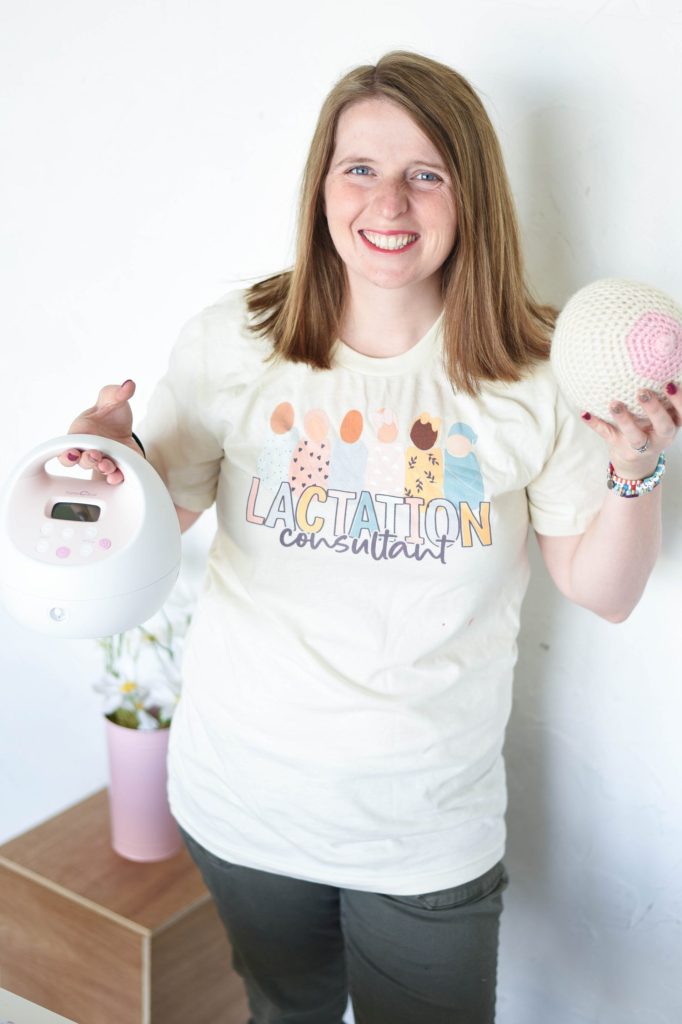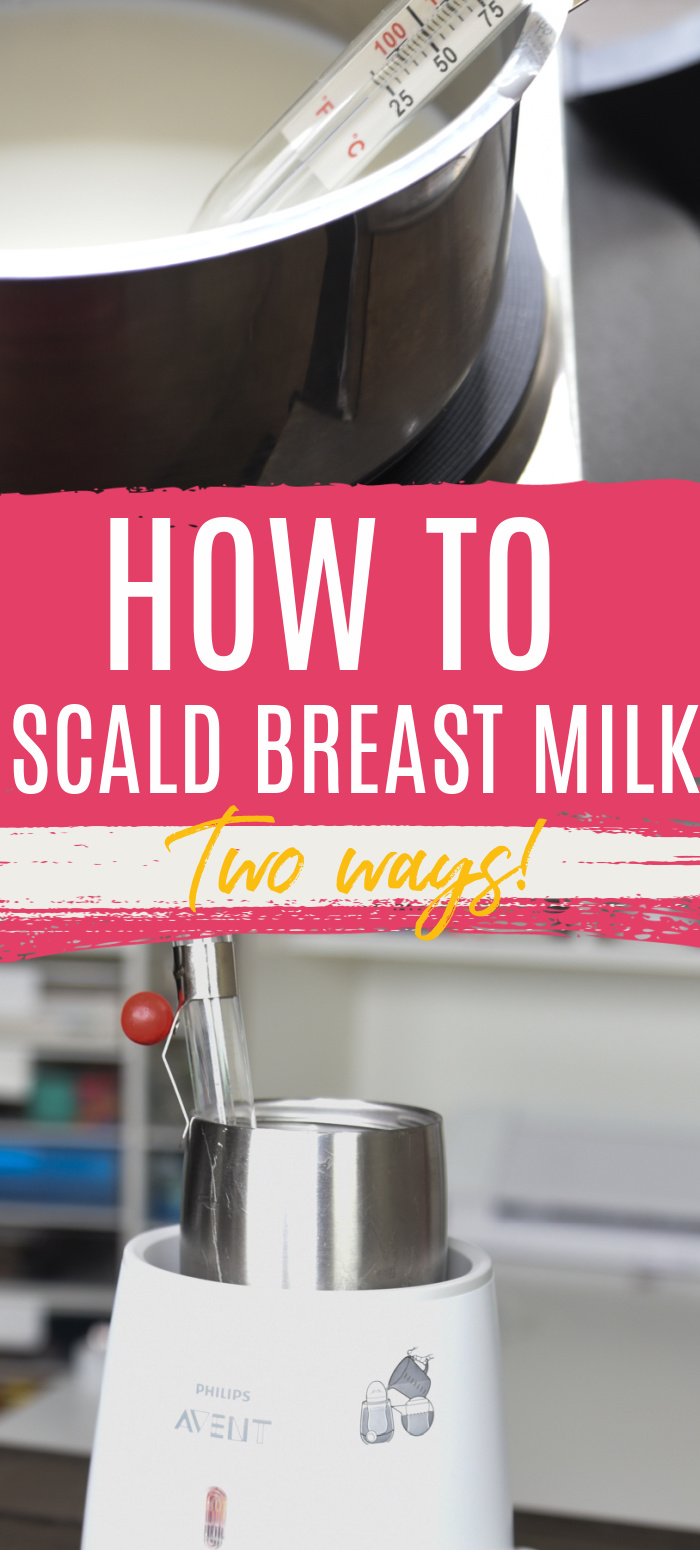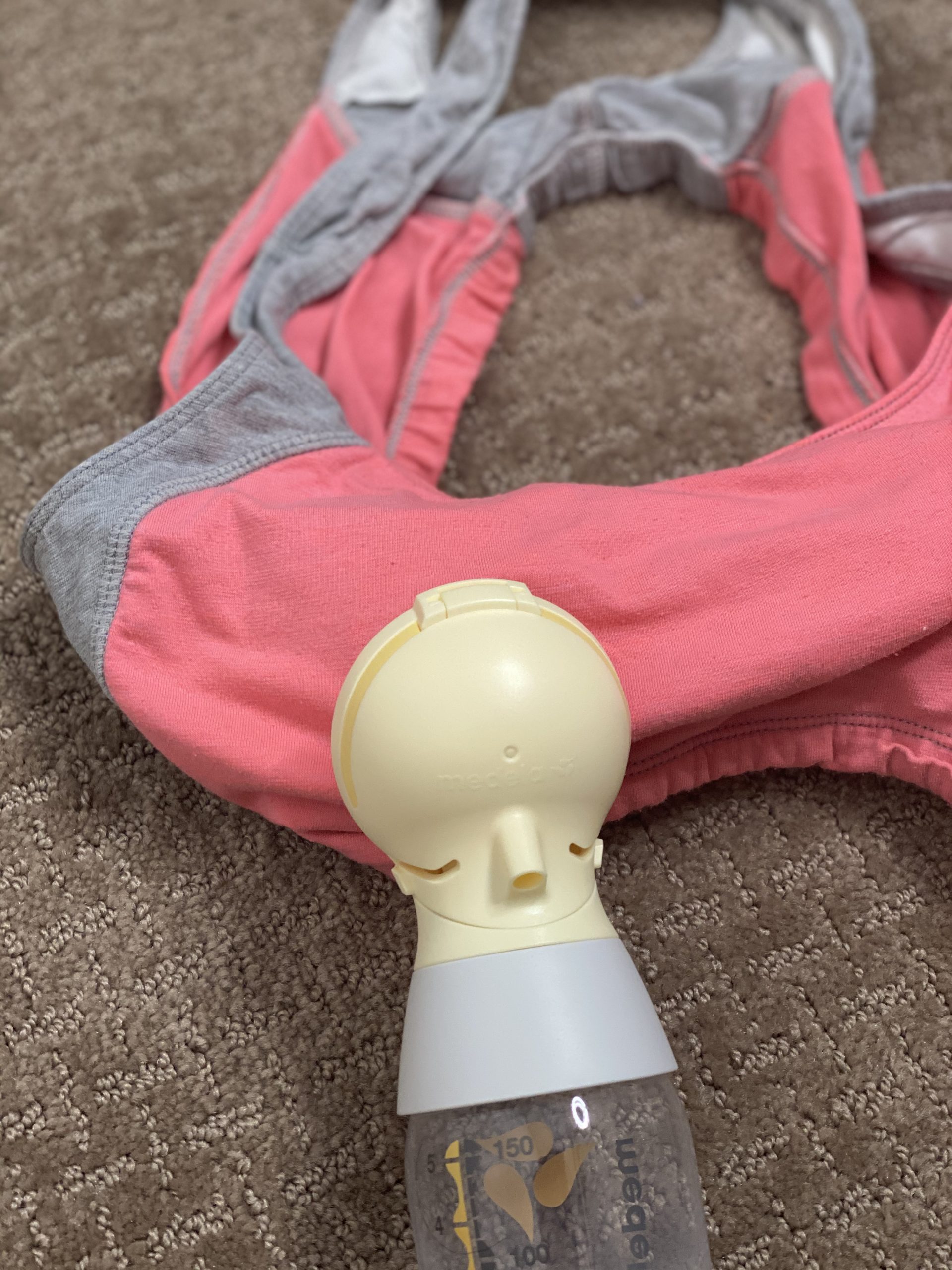If you’re a breastfeeding mom, you may wonder if taking Sudafed while nursing breastfed infants is safe. And if it is safe, will Sudafed impact your milk supply? Here’s what you need to know.

Decongestants and Breastfeeding
Many mothers are unsure if they can take Sudafed while breastfeeding and the impact it may have on their breastfeeding infant. Sudafed is one of the most popular over-the-counter medications for a stuffy nose and congestion.
Some medications are safe for use while breastfeeding, while others are not. Before deciding, it is essential to weigh the benefits and risks of taking Sudafed while breastfeeding.
This article provides information on whether or not Sudafed is safe for use while breastfeeding, as well as the potential impacts on milk supply and the best ways to treat congestion while breastfeeding.
Always talk with a trusted healthcare provider before starting a new medication while breastfeeding.
Bottom line – is it safe to take Sudafed while breastfeeding or not?
In terms of impact on a breastfed baby, Sudafed is thought to be safe while breastfeeding for short-term use, as it only transfers to breast milk in small amounts. However, there are reports of it causing irritability in some infants. The most significant risk is that it can hurt the milk supply, so breastfeeding mothers should use Sudafed and other decongestants with caution.
Throughout this article, we’ll dive more into the potential risks and alternative medications. If you are currently pregnant, here is some great information on this topic – Can You Take Sudafed While Pregnant?
What is Sudafed, and what are its uses?
Sudafed is a medication used to treat congestion. The active ingredient in Sudafed is pseudoephedrine. Pseudoephedrine is a decongestant that narrows the blood vessels in your nose and sinuses, reducing swelling and allowing you to breathe more easily. Sudafed is available over-the-counter and by prescription.
Sudafed relieves nasal congestion, sinus pressure, and sore throat. Sudafed can also be used to reduce swelling from allergies. Sudafed is available as a tablet, capsule, liquid, nasal spray, and nasal decongestant strip.
Is Sudafed Safe for Breastfeeding Mothers and Babies
Sudafed is a medication used to treat congestion. The active ingredient in Sudafed is pseudoephedrine. Pseudoephedrine is rated as an L3 drug for 0-12 months, which means that there is limited data, but it is thought to be mostly safe, though it does transfer into breast milk.
With that said, its impact on milk supply can be significant.
MommyMeds, an app that is powered by Infant Risk Center (the leading research center for breastfeeding and the most comprehensive lactation database for medications), says:
“Pseudoephedrine is primarily used as a nasal decongestant. It is usually safe for use during breastfeeding. However, one report suggests a significant reduction in breastmilk in late-stage lactation, >9 months. Mothers with low milk supply, and six or more months postpartum, should use caution or avoid pseudoephedrine altogether. Levels in milk are probably subclinical; however, observe for agitation in the breastfed infant. Breastfeeding mothers with poor or marginal milk production should be exceedingly cautious in using pseudoephedrine. While there are anecdotal reports of its use in mothers with engorgement, we do not know if it is the effective or recommended use for this purpose at this time. “
Does Sudafed impact milk supply?
One of the most significant impacts of Sudafed is its potential to hurt your milk supply. While research is limited, one study showed that “After a single dose of pseudoephedrine 60 mg orally in 8 nursing mothers, there was a mean 24% decrease in milk production over the following 24 hours. No change in blood flow to the breast was detected that could explain the decreased milk production; there was a 13.5% decrease in serum prolactin after pseudoephedrine, but this change did not achieve statistical significance. Oxytocin levels were not measured.” Source
Sudafed is a standard recommendation for moms looking to wean quickly or decrease an oversupply.
As mentioned above, if you have concerns about your milk supply or your baby is over six months old, it is probably best to avoid Sudafed altogether. I would also add that you should wait until your milk supply has regulated, around 6-12 weeks – or avoid it altogether. Far too many moms experience a significant decrease that was difficult to recover from.
I suspect its impact is worse after six months because many mothers have a return to menstruation at this point, which also can hurt the milk supply.
What are the side effects of Sudafed for Mom?
Most of the side effects of a mother will be pretty mild, though if they are troubling enough, they may impact your ability to breastfeed as attentively as you may otherwise. In rare cases, more severe side effects can occur. If you. have any side effects you are concerned about, reach out to a medical provider immediately.
- Nervousness
- restlessness
- trouble in sleeping
- Difficult or painful urination
- dizziness or light-headedness
- fast or pounding heartbeat
- headache
- increased sweating
- nausea or vomiting
- trembling
- unusual paleness
- weakness
Side Effects to Watch For in Baby
Because Sudafed does pass through the breast milk, you will want to pay careful attention to your baby and observe for:
- Irritability
- Poor sleep
- Poor feeding
- Tremor
- Weight loss.
According to Drugs.com, in one study, it was found that 20% of infants exposed to pseudoephedrine experienced irritability. There were 174 reports gathered between January 1985 and June 2011.
Tips for Taking Sudafed while Breastfeeding
You can do a few things to help mitigate the risk of side effects if you must take Sudafed while breastfeeding.
1) Take Sudafed at the lowest effective dose for the shortest possible time.
2) If possible, take Sudafed after nursing or pumping. You can feed the milk you pump unless adverse side effects are noted.
3) Pay attention to your baby for any side effects. If you notice anything that concerns you, contact a medical professional immediately.
4) Be sure to stay hydrated while taking Sudafed as it can cause dehydration. I would also recommend increasing electrolytes – I like Relyte from Redmond Sea Salt (save 10% with the code CLARKS).
If you have any concerns about taking Sudafed while breastfeeding, always consult with a medical professional before making a decision. They will be able to help you weigh the risks and benefits and make the best decision for you and your baby.
Are Nasal Spray Decongestants Safe While Breastfeeding?
The short answer is that it depends on the ingredients of the nasal spray. Some decongestants, like phenylephrine (until 12 months) and oxymetazoline, are safe for use while breastfeeding and are preferred medications over Sudafed. However, other decongestants, like pseudoephedrine, are not recommended for use while breastfeeding due to the impact on milk supply. It is essential to check the ingredients of any nasal spray you are considering using to ensure it is safe for use while breastfeeding.
Decongestant sprays, such as Corticosteroid Nasal Sprays such as Flonase, are considered the safest and most effective to use while breastfeeding. They tend to transfer a lower amount of the medication. Cromolyn sodium nasal spray, such as Nasalcrom, is also in the same category.
If you have any concerns about taking Sudafed while breastfeeding, always consult with a medical professional before making a decision. They will be able to help you weigh the risks and benefits and make the best decision for you and your baby.
Natural Alternatives for Treating Congestion While Breastfeeding
A few natural alternatives can be used to help treat congestion while breastfeeding. These may feel like safer alternatives for many breastfeeding moms and breastfed babies.
1) Saline nasal spray: This can help to thin out mucus and make it easier to expel.
2) Steam: Inhaling steam can help to open up the sinuses and promote drainage.
3) Elevate your head: This can help to drain the sinuses and reduce congestion.
4) Drink plenty of fluids: This will help to thin out mucus and keep you hydrated.
5) Use a humidifier: This can help to add moisture to the air and reduce congestion.
6) Essential Oils: Eucalyptus or peppermint oil may be helpful, though be aware that peppermint can decrease supply. Here is an excellent article about essential oils and breastfeeding.
7) Vitamin C: Increase your vitamin C intake. Taking vitamin C before you get sick can help to boost your immune system to prevent illness and respiratory infections.
8) Neti Pot: The Neti-Pot system is prevalent and effective for treating congestion.
9) Herbal Remedies: Ginger and Tumeric are popular remedies for congestion and cayenne pepper.
Is it safe to breastfeed while sick?
The short answer is yes; it is usually safe to breastfeed while sick. Breastfeeding can help to protect your baby from getting sick as well. Following good hygiene and limiting contact between you and baby when you aren’t feeding if the illness is severe is essential.
If you have any concerns about taking Sudafed as a nursing mother, always consult with a health professional before making a decision. They will be able to help you weigh the risks and benefits and make the best decision for you and your nursing infant.







